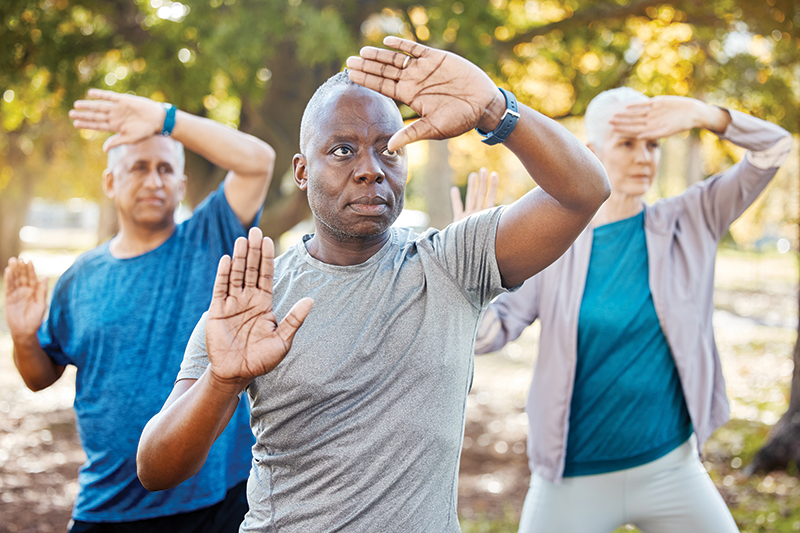In working with a number of patients concerned about optimizing brain health in the hopes of reducing their cognitive decline, I let them know that any successful program must include both physical and brain exercise. If you have seen the debilitating impact of dementia on a loved one (my dear mother was one), you become determined to do what you can to avoid a similar fate.
While there is currently no cure for dementia, research suggests that a combination of physical and mental exercises can play a crucial role in preventing cognitive decline and promoting overall brain health. In this article, we will explore the benefits of exercise, both physical and mental, in dementia prevention and discuss recommendations for a holistic approach to cognitive well-being.
Physical Exercise and Dementia Prevention
Regular physical exercise has been shown to positively impact brain health and can significantly reduce the risk of dementia. Engaging in aerobic activities such as walking, jogging, or swimming helps improve blood flow to the brain, promoting the growth of new neurons and enhancing overall cognitive function.
Recommendations for physical exercise include at least 150 minutes of moderate-intensity aerobic exercise per week, coupled with strength training exercises at least two days a week. However, it’s essential to customize exercise routines based on individual fitness levels and health conditions.
Cross-Midline Exercises and Integration of Brain Hemispheres
Cross-midline exercises are particularly beneficial for promoting communication between the brain’s hemispheres. These exercises involve movements that cross the imaginary line running down the center of the body, facilitating coordination and integration of both sides of the brain. Activities like cross-crawl exercises, where opposite hand and knee are brought together, can enhance neural connections and contribute to better cognitive function. I will often walk sideways in the pool, making sure to have my legs cross my midline.
Tai Chi: A Mind-Body Exercise for Brain Health
Tai Chi, an ancient Chinese martial art, offers a unique combination of physical exercise and mindfulness. Studies have shown that practicing Tai Chi not only improves balance and flexibility but also enhances cognitive abilities. The slow, flowing movements of Tai Chi require concentration and coordination, providing a gentle yet effective workout for the brain.
In addition to its physical benefits, Tai Chi can reduce stress, which is crucial for maintaining optimal brain health. Integrating Tai Chi into a regular exercise routine can contribute significantly to dementia prevention.
Mental Exercise for Cognitive Stimulation
In addition to physical exercise, mental stimulation is crucial for maintaining cognitive health. Engaging in activities that challenge the brain, such as puzzles, games, and learning new skills, can help build cognitive reserves and delay the onset of dementia.
The best mental exercises for cognitive stimulation include:
- Puzzle-solving: Crossword puzzles, Sudoku, and jigsaw puzzles can stimulate different areas of the brain, enhancing memory and problem-solving skills.
- Learning a new language or musical instrument: Taking on the challenge of learning a new language or playing a musical instrument not only provides mental stimulation but also promotes neuroplasticity, the brain’s ability to adapt and form new connections.
- Online brain training platforms: Websites like Lumosity and Brain HQ offer a variety of cognitive training games designed to challenge memory, attention, and problem-solving skills. These platforms provide personalized exercises based on individual performance, making them a
convenient tool for cognitive stimulation.
Combining physical and mental exercises is vital to a comprehensive approach to preventing dementia and maintaining cognitive health. Regular physical activity, cross mid-line exercises, Tai Chi, and engaging in mentally stimulating activities all contribute to building cognitive reserves and promoting overall well-being. Embracing new challenges, such as learning a new language or playing a musical instrument, and incorporating brain training games from platforms like Lumosity and Brain HQ can further enhance cognitive stimulation. By adopting a holistic lifestyle that prioritizes both physical and mental health, individuals can take proactive steps toward dementia prevention and enjoy a higher quality of life as they age.
Dr. Michael Kane is a Naturopathic Physician at the Connecticut Center for Natural Health in Middletown. A graduate of Bastyr University in Washington State, Michael continually learns from his patients and takes the art of listening very seriously.
Connecticut Center For Natural Health is located at 210 S. Main St. Visit: yournaturalhealth.com or call 860.347.8600.
